Equipment commonly used in biological laboratories

Unveiling the Small Wonders: Essential Equipment in Biological Laboratories
Introduction:
Biological laboratories are hubs of discovery, where scientists unravel the mysteries of life through meticulous experimentation. At the heart of these laboratories are a myriad of small yet indispensable pieces of equipment that empower researchers to conduct precise, controlled experiments. From the microscale to the macroscale, these tools are the unsung heroes of scientific exploration, facilitating tasks ranging from sample preparation to data analysis. In this article, we delve into the realm of small equipment commonly found in biological laboratories, shedding light on their diverse roles and contributions to advancing our understanding of the living world.
Microcentrifuges:
One of the workhorses of biological laboratories, microcentrifuges are compact, high-speed devices designed for the quick separation of cellular components, proteins, or nucleic acids. These small wonders spin samples at high speeds, generating centrifugal forces that enable the isolation of biomolecules with remarkable precision. From DNA extraction to protein purification, microcentrifuges play a pivotal role in the daily operations of biological research.
Pipettes:
Precision and accuracy are paramount in biological research, and pipettes are the tools that ensure these qualities in the handling of liquids. Available in various designs, including single-channel and multichannel pipettes, these handheld devices are used for dispensing precise volumes of liquids, such as reagents, enzymes, and samples. With applications spanning from PCR setup to cell culture, pipettes are indispensable for achieving reproducible results in the laboratory.
Thermal Cyclers:
Crucial for studies involving DNA, thermal cyclers are compact instruments that facilitate the polymerase chain reaction (PCR). These devices cyclically alter the temperature of reaction mixtures, allowing for the amplification of specific DNA sequences. In genetic research, diagnostics, and forensics, thermal cyclers serve as the engines that drive the exponential replication of genetic material, enabling the study of genes and the detection of genetic variations.
Microscopes:
While the concept of microscopes is not new, advancements in technology have led to the development of sophisticated yet compact microscopy systems. Fluorescence microscopes, confocal microscopes, and inverted microscopes are examples of small-scale imaging equipment that provide researchers with the ability to visualize cellular structures, dynamic processes, and biomolecular interactions at high resolution. These tools are instrumental in fields ranging from cell biology to neuroscience.
Gel Documentation Systems:
In the realm of molecular biology, gel documentation systems are compact devices designed to capture and analyze images of nucleic acid or protein gels. These systems utilize UV or visible light to illuminate fluorescently labeled molecules, enabling researchers to document and analyze the results of gel electrophoresis. Gel documentation is a routine procedure in molecular biology laboratories, supporting tasks such as DNA fingerprinting, gel extraction, and protein analysis.
Conclusion:
While large instrumentation captures attention with their complexity and capabilities, it's the small equipment in biological laboratories that often holds the key to breakthrough discoveries. From microcentrifuges and pipettes to thermal cyclers, microscopes, and gel documentation systems, these tools are the unsung heroes of the scientific journey, driving progress in fields ranging from genetics to cell biology. As technology continues to evolve, these small wonders will undoubtedly remain at the forefront of biological research, empowering scientists to unlock the secrets of life on a molecular level.

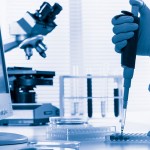
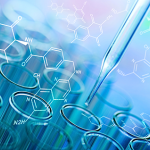
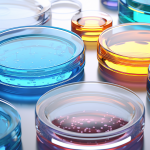
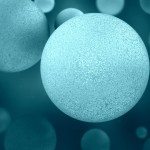
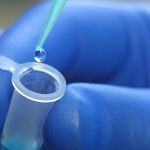
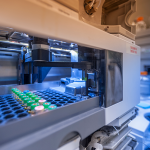
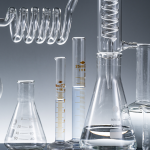
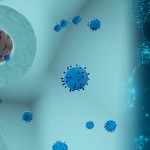





84 Comment(s)
We provide support for those looking for 'Take my GED for me' or 'Take my TEAS exam' solutions. Need help with your GED or TEAS exam? We offer services so you can pay someone to take your GED or TEAS exam, hire someone for exam assistance and solutions.
Microcentrifuges are super important for quick separation of biomolecules. Without them, DNA extraction and protein purification would take forever. Pipettes are also a must-have, keeping everything precise and accurate when handling liquids. Thermal cyclers are essential too, especially when doing PCR. They make amplifying DNA sequences so much easier. Microscopes let you visualize all the tiny details in cell biology, which is a game-changer for many experiments. And gel documentation systems are key for analyzing gels after electrophoresis. All these small tools are honestly what keep a lab running smoothly.
Microcentrifuges are super important for quick separation of biomolecules. Without them, DNA extraction and protein purification would take forever. Pipettes are also a must-have, keeping everything precise and accurate when handling liquids. Thermal cyclers are essential too, especially when doing PCR. They make amplifying DNA sequences so much easier. Microscopes let you visualize all the tiny details in cell biology, which is a game-changer for many experiments. And gel documentation systems make analyzing gels so much more efficient. All these tools are pretty much essential if you're working in any biological lab.
https://scrapcarguys.ca/burnaby/?srsltid=https://scrapcarremovalburnaby.ca?seoburnaby.ca
Thank you very much for this great post.
Thank you very much for this great post.
very good post, i surely love this fabulous website, carry on it
Grow a Garden
Sweats Collective <a href="https://sweatscollective.au/">Sweats Collective</a> Hoodies, tees, pants & more—<a href="https://sweatscollective.au/">Sweats</a> crafted for comfort, style, and timeless wear. Upto 40 To 80 % OFF
1'"
\
@@Qia2D
JyI=
(select convert(int,CHAR(65)))
1
1
-1 OR 2+969-969-1=0+0+0+1 --
-1 OR 3+969-969-1=0+0+0+1 --
-1 OR 3*2<(0+5+969-969) --
-1 OR 3*2>(0+5+969-969) --
-1 OR 2+869-869-1=0+0+0+1
-1 OR 3+869-869-1=0+0+0+1
-1 OR 3*2<(0+5+869-869)
-1 OR 3*2>(0+5+869-869)
-1' OR 2+261-261-1=0+0+0+1 --
-1' OR 3+261-261-1=0+0+0+1 --
-1' OR 3*2<(0+5+261-261) --
-1' OR 3*2>(0+5+261-261) --
-1' OR 2+719-719-1=0+0+0+1 or 'ujvri6Xb'='
-1' OR 3+719-719-1=0+0+0+1 or 'ujvri6Xb'='
-1' OR 3*2<(0+5+719-719) or 'ujvri6Xb'='
-1' OR 3*2>(0+5+719-719) or 'ujvri6Xb'='
-1" OR 2+569-569-1=0+0+0+1 --
-1" OR 3+569-569-1=0+0+0+1 --
-1" OR 3*2<(0+5+569-569) --
-1" OR 3*2>(0+5+569-569) --
if(now()=sysdate(),sleep(8),0)/*'XOR(if(now()=sysdate(),sleep(8),0))OR'"XOR(if(now()=sysdate(),sleep(8),0))OR"*/
(select(0)from(select(sleep(12)))v)/*'+(select(0)from(select(sleep(12)))v)+'"+(select(0)from(select(sleep(12)))v)+"*/
-1; waitfor delay '0:0:12' --
-1); waitfor delay '0:0:12' --
1 waitfor delay '0:0:4' --
vHFqGJbd'; waitfor delay '0:0:4' --
-1;select pg_sleep(8); --
-1);select pg_sleep(8); --
-1));select pg_sleep(12); --
QhzUK3rB';select pg_sleep(4); --
Cr17sKSv');select pg_sleep(4); --
xOu1yySB'));select pg_sleep(8); --
short term effects of anabolic steroids
best steroids to get big fast
the most common steroid in the body is
casinos san diego
online casino u s a
https://nijavibes.com/ivoryhunt99083
https://git.gaminganimal.org/colemanwollast
https://projects.om-office.de/lesterhumes87
https://shamrick.us/alysaselle4318
https://www.superphage.org/adriene9439075
https://gt.clarifylife.net/mammiemereweth
https://git.daneric.dev/cheriedillard2/cherie1996/wiki/Official-online-casino-website-Rocket-Australia-250-welcome-bonus
https://git.lodis.se/cathryn89l9187/blackcoin.co2005/wiki/How-to-Win-in-a-Casino%3A-Gambling-Strategies-for-Beginners
https://gitea.uchung.com/andrapring0301
https://gogs.gaokeyun.cn/txbdarrin19892
https://gogs.ra-solutions.de/muoigilyard42
https://www.appleradish.org/kitty568937951
https://git.galaxylabs.ca/abelratcliffe
https://git.temporaryname.org/yjnshoshana354
https://nas.zearon.com:2001/alexhewlett063/alex2020/wiki/Sign-In-To-Fair-Go-Casino-For-Fast-Bonus-Access-Today
https://git.camus.cat/alanmcleod4824
https://wiki.idealirc.org/karmanathan06
https://hanyunmedical.com/zackscruggs282
https://git2.huai-yun.com/fmptyrell2878/blackcoin.co7341/wiki/Play-Slots%2C-Table-Games-%26-Live-Casino-Online
https://git.ghostpacket.org/caitlynstpierr
https://twittecx.com/read-blog/4384_best-real-money-australian-online-casino-sites-for-2025.html
https://www.lab.justusdeitert.de/adolfograve817
https://hiphopmusique.com/caryguidry1499
https://www.lab.justusdeitert.de/evangelineoste
https://worship.com.ng/sylvialarnach1
https://silatdating.com/@winfredolden9
https://git.nightime.org/mitchelholguin
https://gogs.artapp.cn/eunicetatum926/2039blackcoin.co/wiki/Casino%252C+NSW
https://giteap.grobest.com:3000/juanitamcminn
https://gitea.coderpath.com/cortneycusack1
https://palchat.top/read-blog/9478_crown-sydney.html
https://git.droenska.com/sharronmacknig
https://karr83.world/read-blog/1594_casino-mate-login-registration-amp-welcome-bonus.html
https://surily.in/victoriabell54
http://tangxj.cn:6012/lukewollstonec/blackcoin.co1982/wiki/Casino+Rocket+Review+Expert+%2526+User+Ratings+%25EF%25B8%258F+2025
https://surily.in/christacamaren
https://gitea.mocup.org/aaroneade77672
https://git.nightime.org/mitchelholguin
https://twittecx.com/read-blog/4494_best-online-live-casinos-2025-play-at-the-top-us-live-casinos.html
https://gitea.coderpath.com/ernieezell125/6505080/wiki/Mobile-App-Instant-Play-Online-Pokies-Free-Spins-Tournaments-No-Deposit-Bonus-Codes-2025-Promo-Coupons-FairGoPlus
https://git.9ig.com/rhondadawson0/rhonda2005/wiki/Fair-Go-Casino-no-deposit-Bonus-Codes-November-2025
https://tunelifystream.com/stephenmeisel
https://icstepup.com/read-blog/11792_slots-amp-live-spiele-mit-1-250-bonus.html
https://git.mista.ru/aleidahammons
https://unired.zz.com.ve/@veronagibbs138
https://git.bp-web.app/byrontorrens8/1565blackcoin.co/wiki/%E2%AD%90%EF%B8%8F-RocketPlay-Casino-Australia-Login-Blast-Off-to-Big-Wins%21
https://git.hanckh.top/bettecoventry
https://git.daneric.dev/tresaenyeart7/9740260/wiki/%E2%80%8ECasino-Royale-2006-directed-by-Martin-Campbell-Reviews%2C-film-+-cast
https://git.konsulterna.nu/aimeew2753420
https://twittecx.com/read-blog/4405_top-online-pokies-in-australia.html
https://schokigeschmack.de/adella0791704
http://git.intelgice.com/dallasbeaudoin
http://175.6.124.250:3100/roryocc433436/5982blackcoin/wiki/Link-to-Download-on-iOS-and-Android-Devices
https://pokesoul.com/@nataliarnq2626
https://seychelleslove.com/@tracilinney259
https://git.cloud.leonclassroom.com/marcusdehamel1/blackcoin5000/wiki/Star-Entertainment-Clings-to-Life-After-Unloading-Brisbane-Casino
https://niqnok.com/kinasauls3623
https://git.vicagroup.com.cn/amandaainslie6/5367blackcoin/wiki/SkyCrown+Online+Casino+Best+Australian+Online+Casinos
https://git.bw-yx.com/chaslapham060
http://hoenking.cn:3000/jarrodtraugott/blackcoin5984/wiki/The-Star-Gold-Coast-Wikipedia
https://git.lucas-michel.fr/alberta0813506/2779blackcoin.co/wiki/Login%2C-Welcome-Pack-up-to-5%2C000-+-400-Free-Spins
https://talkkro.com/read-blog/7311_james-bond-all-3-casino-royale-adaptations-explained.html
https://qrew.social/read-blog/10730_crown-casino-perth-everything-you-need-to-know.html
http://116.62.115.84:3000/celesteynt0436
https://www.chembans.com/@lorenza0241070
https://git.atomos.io/beckybethune41
https://suksesvol.org/read-blog/78963_casino-nsw.html
https://gitea.fuluzhanggui.com:99/denaspriggs329
https://www.superphage.org/albertinaprins
https://gitlab.innive.com/omermendoza22/5411568/-/issues/1
https://git.repo.in.net/ameliesteinmet
https://dreamplacesai.de/perry53a16589
https://gitea.noname-studios.es/lonniecamacho
https://git.limework.net/jeroldafford85
https://gitea.carmon.co.kr/angelinakershn/8765469/wiki/Welcome-to-Fair-Go-Online-Casino
https://hgngit.ipdz.me/antonyhammons4
https://www.appleradish.org/melva21n816374/blackcoin.co3114/wiki/Ignition-Casino-Review-Is-Ignition-Legit%3F-Honest-Assessment
https://gitnto.innovationcampus.ru/ethelmitford9
https://git.lokalix.de/gildaburston13
https://gitea.shirom.me/judithhowchin4
https://gitea.tpss.top/lukehauslaib4
https://git.olyntec.com/jonoflaherty09
https://freehatlimitone.xyz/@willyweatherly
https://git.2ops.fun/marjorie87n666
https://www.zaighum.com/employer/rocket-play-casino-no-deposit-bonus-australia-november-2025/
http://life-tree.co.kr/bbs/board.php?bo_table=free&wr_id=15
http://nursedaum.com/bbs/board.php?bo_table=free&wr_id=18
https://fmagency.co.uk/companies/best-online-casino-with-bonuses-slots/
https://trainersjunction.com/employer/top-10-best-online-casinos-australia-for-real-money-2025/
https://ninula.com/employer/the-national-casino-official/
https://careerssearch.uk/employer/21bit-org-promotions-the-best-casino-bonuses-online/
https://linknest.vip/bettej47343396
https://xn--pe5bmpu5qnvd73bca.com/bbs/board.php?bo_table=free&wr_id=68
https://ethiofarmers.com/1500-aud-bonus-on-registration/
http://gang-yeon.com/bbs/board.php?bo_table=faq&wr_id=452594
https://urbanplannerjobs.com/employer/casino-station/
https://wisewayrecruitment.com/employer/sgr-asx-star-entertainment-in-need-of-deal-to-save-the-casino-operator-from-collapse/
http://www.hptech.co.kr/bbs/board.php?bo_table=04_order&wr_id=539642
https://jobsonly.in/employer/the-star-entertainment-group-limited-stock-sgr/
https://taradmai.com/profile/iyuesperanza40
https://xn--pe5bmpu5qnvd73bca.com/bbs/board.php?bo_table=free&wr_id=68
https://cucbac.vn/gilbertmealmak
http://ww.yeosunet.com/bbs/board.php?bo_table=free&wr_id=159575
https://sosjob.ca/employer/star-entertainment-tumbles-on-fresh-warning-asx-rises-trump-meme-coin-price-swings-as-it-happened/
https://www.garagesale.es/author/lasonyagold/
http://www.xn--vk1bj3qdukp4i.com/bbs/board.php?bo_table=free&wr_id=12
https://millhive.co.uk/rosakingsbury
https://marine-courses.com/employer/star-casino-shares-holding-on-for-dear-life-heres-the-latest/
http://www.xn--3e0bl91azmcnwkspav10e.com/bbs/board.php?bo_table=free&wr_id=22
https://jobbridge4you.com/employer/7bit-casino-australia-official-gambling-site-for-aussies/
https://walsallads.co.uk/profile/lemuelwiese040
https://ttl01.com/bbs/board.php?bo_table=free&wr_id=355042
https://www.fanz.ing/jdnadeline445
https://profylelink.com/teriglaser9963
https://agedcarepharmacist.com.au/employer/cashman-casino-app-on-amazon-appstore/
https://linko.kosari.net/brigidawoolner
https://jobsremote.work/employer/online-casino-real-money-guide-top-apps-and-legal-states-in-2025/
https://workfind.in/profile/geri85g5731693
https://www.khanss.com/bbs/board.php?bo_table=free&wr_id=11
https://pandahouse.lolipop.jp:443/g5/bbs/board.php?bo_table=aaa&wr_id=3025131
https://ibio.app/mammiebatt
https://pandahouse.lolipop.jp:443/g5/bbs/board.php?bo_table=aaa&wr_id=3025131
https://mobidesign.us/employer/best-real-money-online-casinos-australia-2025-updated-list
https://profalink.com/drewkruger
https://enter.id.vn/jenniyiraw
https://webtily.com/vicentetfa4775
https://bz9.com/vSsYG
https://expat-go.com/employer/myanmar-gambling-scam-thailand-extradites-chinese-national-with-cambodian-passport-to-china/
https://www.startup-door.com/employer/king-billy-casino-australia-enter-the-kingdom-with-a2500-bonus/
https://profylelink.com/garlandmcalexa
https://gomyly.com/yvonnebueno319
https://profylelink.com/garlandmcalexa
https://innvo.pro/julietasay
https://articleship.in/companies/official-sydney-tourism-website/
https://f-ast.me/majormale96532
https://superlinktree.com/aywgia2798
http://thdeco.com/bbs/board.php?bo_table=free&wr_id=331783
https://cut.gl/cassieconstanc
https://icskorea.co.kr/bbs/board.php?bo_table=free&wr_id=516731
https://apollo2b.com/marilyncastell
https://url.csweb.com.tr/mariangill0659
https://next-work.org/companies/reef-hotel-casino-review-cairns-2025-gaming-guide-stats/
http://oporajitashop.com/adelestonge323
https://hirenhigher.co.nz/companies/iris-capital-gains-backing-for-177m-reef-casino-trust-acquisition/
http://life-tree.co.kr/bbs/board.php?bo_table=free&wr_id=12
https://links.simeona.com.br/jurgenrivers03
https://woodwell.co.kr/bbs/board.php?bo_table=free&wr_id=58998
https://jobfreez.com/employer/site-map/
https://ashkert.am/%D5%A1%D5%B7%D5%AF%D5%A5%D6%80%D5%BF%D5%AB-%D5%B0%D5%A1%D5%B4%D5%A1%D6%80/21bit-casino-750-bonus-plus-250-free-spins/
https://allinonetab.com/qEVJn
https://www.theangel.fr/companies/rocketplay-no-deposit-bonus-codes-and-free-spins-updated/
https://flamingo.onl/rodhales38
https://findmeacaregiver.com/employer/best-online-casinos-australia-traffic-plus-rates-real/
https://pridestaffing.us/companies/joe-fortune-casino-sign-up-bonus-new-coupon-codes-2025/
https://sportsprojobs.net/employer/115581/top-real-money-casino-sites-2025/
http://www.bydjsl.com/bbs/board.php?bo_table=free&wr_id=209817
http://www.seoulschool.org/bbs/board.php?bo_table=free&wr_id=1482791
https://jobsrific.com/employer/7bit-casino-new-zealand-licensed-online-casino/
https://impulsame.net/jennifink5
https://lauriumconsultancy.nl/companies/a-high-rollers-guide-to-sydneys-biggest-casinos/
https://skillmais.com/companies/20-best-online-casinos-for-real-money-november-2025/
https://lil.so/bradlytomaszew
https://qr.miejtech.com/ouidaconnely44
https://trlink.org/hiltonvald
https://connectthelinks.com/devinwall03647
http://jobs.recruithub.africa/profile/biancasceusa94
http://caffesimone.com/bbs/board.php?bo_table=free&wr_id=13299
https://secretmessage8.site/afqrosalyn2341
best online radio
https://clipmy.link/PhkVn https://clipmy.link
http://w.enhasusg.co.kr/bbs/board.php?bo_table=free&wr_id=2632349 w.enhasusg.co.kr
https://url9xx.com/joesphcabrera url9xx.com
https://aurelus.link/mikelhopman73 aurelus.link
https://metalink.cfd/dinahdonahoe67 metalink.cfd
https://abtl.ink/rosellashu https://abtl.ink/
http://carecall.co.kr/bbs/board.php?bo_table=free&wr_id=1913639 carecall.co.kr
https://www.smilecarexport.com/bbs/board.php?bo_table=free&wr_id=70 https://www.smilecarexport.com/bbs/board.php?bo_table=free&wr_id=70
https://searl.co/aidenwoollard9 searl.co
https://url9xx.com/brodieboreham https://url9xx.com/brodieboreham
http://hi-d.co.kr/bbs/board.php?bo_table=free&wr_id=426891 http://hi-d.co.kr
https://oclick.top/ptffp https://oclick.top
http://www.career4.co.kr/bbs/board.php?bo_table=ci_consulting&wr_id=307425 www.career4.co.kr
http://bdeng.net/bbs/board.php?bo_table=free&wr_id=15 bdeng.net
https://iwork.youthfiji.org/profile/betsybidencope iwork.youthfiji.org
https://metalink.cfd/niiantonietta metalink.cfd
https://www.bookmyaccountant.co/profile/joanncabrera2 https://www.bookmyaccountant.co
https://iraqhire.com/employer/new-november-2025/ https://iraqhire.com/
play slots for fun
https://vcards.fennec-vision.com/nancycayton26 https://vcards.fennec-vision.com/nancycayton26
https://corerecruitingroup.com/employer/joe-fortune-casino-review-joe-fortune-online-gambling/ corerecruitingroup.com
https://worldwiderecruiters.ca/employer/new-online-casinos-australia-2025-guide/ https://worldwiderecruiters.ca/employer/new-online-casinos-australia-2025-guide
https://jobs.ethio-academy.com/employer/about/ https://jobs.ethio-academy.com
http://www.toilland.com/bbs/board.php?bo_table=free&wr_id=59493 www.toilland.com
https://jobzz24.com/employer/star-entertainment-may-have-secured-a-lifeline-but-the-future-of-the-casino-operator-remains-a-gamble/ jobzz24.com
http://cctvss1004.com/bbs/board.php?bo_table=free&wr_id=651984 http://cctvss1004.com
https://jobhaiti.net/employer/gold-coast-hotel-casino-off-strip/ https://jobhaiti.net/employer/gold-coast-hotel-casino-off-strip/
https://ttdt.info/christian66u09 ttdt.info
https://bk-careers.com/companies/cashman-casino-free-coins-november-2025/ bk-careers.com
https://www.jw-test.com/bbs/board.php?bo_table=free&wr_id=351 https://www.jw-test.com/bbs/board.php?bo_table=free&wr_id=351
https://beauty4g.shop/henrietta49l92 https://beauty4g.shop/
https://tayseerconsultants.com/employer/star-entertainment-group-ltd-sgrasx-summary-ft-com/ https://tayseerconsultants.com/
https://nexonjumak.com/bbs/board.php?bo_table=free&wr_id=36 nexonjumak.com
http://www.annunciogratis.net/author/joleneukn26 www.annunciogratis.net
https://niftyhire.com/companies/star-casino-share-price-plummets/ niftyhire.com
https://niftyhire.com/companies/star-casino-share-price-plummets/ https://niftyhire.com/companies/star-casino-share-price-plummets
http://thdeco.com/bbs/board.php?bo_table=free&wr_id=331694 thdeco.com
tampa casino
https://mapnova.com.co/employer/best-online-casino-bonus-australia-top-casino-promos-2025/ mapnova.com.co
https://hubu.ru/maximo03s3 hubu.ru
https://www.milegajob.com/companies/safe-online-casinos-australia-2025-most-trusted-au-casino-sites/ www.milegajob.com
https://kisalt.co/nickn363373475 kisalt.co
https://gagubada.co.kr/bbs/board.php?bo_table=free&wr_id=17 gagubada.co.kr
https://logisticconsultant.net/anbieter/king-billy-casino-australia-enter-the-kingdom-with-a2500-bonus/ logisticconsultant.net
https://fresherskiduniya.com/employer/cairns-queensland-casinos/ fresherskiduniya.com
http://pasarinko.zeroweb.kr/bbs/board.php?bo_table=notice&wr_id=8025498 http://pasarinko.zeroweb.kr/bbs/board.php?bo_table=notice&wr_id=8025498
https://seeurl.site/deongabbard510 seeurl.site
https://jam2.me/rafaelathr https://jam2.me/rafaelathr
https://url.csweb.com.tr/yswnichole2830 url.csweb.com.tr
https://thelegallock.com/job/companies/best-online-casino-sites-australia-2025/ thelegallock.com
https://part-time.ie/companies/aus-real-money-gambling-sites/ https://part-time.ie/companies/aus-real-money-gambling-sites
http://www.gbsa.kr/bbs/board.php?bo_table=free&wr_id=903714 http://www.gbsa.kr/bbs/board.php?bo_table=free&wr_id=903714
https://jam2.me/chaneledwi jam2.me
http://fairviewumc.church/bbs/board.php?bo_table=free&wr_id=1284976 fairviewumc.church
https://portalwe.net/employer/top-online-casinos-usa-play-for-real-money-today/ https://portalwe.net
https://ajira-hr.com/employer/cashman-casino-app-on-amazon-appstore/ https://ajira-hr.com/employer/cashman-casino-app-on-amazon-appstore
https://iratechsolutions.com/employer/pullman-reef-hotel-casino-luxury-cairns-hotel-accor/
https://beshortlisted.com/employer/about/
https://www.flughafen-jobs.com/companies/best-online-casinos-in-australia-top-real-money-casinos-in-2025/
https://r12imob.store/index.php?page=user&action=pub_profile&id=901870
https://www.complete-jobs.com/employer/australian-online-casino-reviews
https://fs-biolink.com/beatriztucker
https://vetanhanguera.shop/homerschli
https://cucbac.vn/muoiworkman545
https://www.recruit-vet.com/employer/joe-fortune-casino:-ultimate-destination-for-big-wins/
http://ttceducation.co.kr/bbs/board.php?bo_table=free&wr_id=3029497
https://millhive.co.uk/luellaisabel0
https://interimspot.com/employer/the-reef-hotel-casino-cairns/
https://body-positivity.org/groups/ozwin-casino-login-quickly-access-bonuses-account-perks/
https://linksshortcut.com/laynequinlan09
https://usdrjobs.com/employer/slot-search/
https://werkstraat.com/companies/australias-most-thrilling-online-casino/
https://www.punjabbazar.com/user/profile/alextran561/item_type,active/per_page,16
https://url.pixelx.one/louellavardon
https://craftsmansearch.com/employer/claim-20000-welcome-bonus-plus-500-free-spins/
https://link-me.vip/gretaweddle68
https://www.social-lancer.com/profile/marcelino43k01
https://rhcstaffing.com/employer/joe-fortune-online-casino-australia-get-your-5000-welcome-bonus-right-now/
http://www.leeonespa.com/bbs/board.php?bo_table=free&wr_id=80
https://westorebd.com/employer/top-online-casinos-and-casino-games-for-australians-in-2025/
https://cvcentrum.eu/companies/the-star-asx-sgr-suspended-over-accounts-failure-with-administration-on-the-cards/
https://www.smilecarexport.com/bbs/board.php?bo_table=free&wr_id=76
https://seoulthegowoon.com/bbs/board.php?bo_table=free&wr_id=488905
https://skinforum.co.in/employer/contact/
https://99link.me/XSNvM
https://fskdigital.com/berrysong78553
https://creationsmanpower.com/employer/2025-australia-legal-online-casinos-aussie-online-casinos/
https://stayzada.com/bbs/board.php?bo_table=free&wr_id=467020
https://aba.work/employer/22174/the-untold-story-of-dangerous-australian-casino-connections-that-saved-donald-trump-from-financial-ruin
https://k1t.kr/errol46b04716
https://hubu.ru/veta28101
https://xqr.ai/waylonmull
https://ayiota.com/employer/cashman-slots-10k-free-coins/
https://teba.timbaktuu.com/employer/250-bonus-250-free-spins/
https://sibly.ir/kendralandale
https://recrutement.fanavenue.com/companies/national-casino-canada-your-unforgettable-gambling-experience/
https://t2k.in/xavierhorn5593
https://www.noleggioscaleimperial.it/companies/21bit-casino-about-us-information-about-21bit-casino/
https://kor.fromkorea.kr/bbs/board.php?bo_table=free&wr_id=3120
https://www.belizetalent.com/employer/national-casino-2025-review-of-bonuses-games-and-payments/
https://jobs-classifieds.com/employer/7bitcasino-crypto-gambling-site/
https://www.startup-door.com/employer/best-online-casinos-for-real-money-in-the-usa-2025/
http://fairviewumc.church/bbs/board.php?bo_table=free&wr_id=1277573
https://ushort.xyz/claudia5592634
https://clcs.site/briannelind957
http://bdeng.net/bbs/board.php?bo_table=free&wr_id=5
https://cumbriasearch.co.uk/companies/secure-online-games-with-fast-real-money-payouts/
https://iratechsolutions.com/employer/pullman-reef-hotel-casino-luxury-cairns-hotel-accor/
https://link.1hut.ru/shoshanai5491
https://moy.kr/tatianablue34
http://app.vellorepropertybazaar.in/profile/blainecayton9
https://www.toutsurlemali.ml/employer/joe-fortune-casino-review-a-top-choice-for-online-gaming/
https://kota.lk/lupe13y1067339
https://vetanhanguera.shop/virgiemaki
http://www.century-korea.com/bbs/board.php?bo_table=free&wr_id=25
http://xn--hg3b25hm0h.com/bbs/board.php?bo_table=free&wr_id=1743409
https://judicioushr.com/employer/joe-fortune-casino-no-deposit-bonus-promo-codes-2025/
https://expat-go.com/employer/king-billy-casino-australia-2025/
https://dev.worldluxuryhousesitting.com/employer/best-online-casino-sites-us-real-money-casinos-2025/
pittsburgh casino
https://www.volleyvillage.it/employer/free-slots-at-cashman-casino-play-200-games-with-virtual-coins/ https://www.volleyvillage.it/
http://workompass.com/employer/log-in-and-play-casino-games-online-in-australia/ workompass.com
https://trlink.org/walterquis trlink.org
https://rejobbing.com/companies/joe-fortune-casino-ultimate-destination-for-big-wins/ rejobbing.com
https://centerdb.makorang.com:443/bbs/board.php?bo_table=qa&wr_id=80635 https://centerdb.makorang.com/
https://gpyouhak.com/gpy/bbs/board.php?bo_table=free&wr_id=3364090 gpyouhak.com
https://classifylistings.com/index.php?page=user&action=pub_profile&id=179961 classifylistings.com
https://jobs.jaylock-ph.com/companies/best-real-money-australian-online-casino-sites-for-2025/ jobs.jaylock-ph.com
https://casjobs.in/employer/national-casino-canada-your-unforgettable-gambling-experience/ casjobs.in
https://onlinejob.lk/employer/best-online-casinos-in-australia-for-2025/ onlinejob.lk
http://q.yplatform.vn/86823/ozwin-casino-bonuses-no-deposit-promo-codes-and-free-spins q.yplatform.vn
https://gspcareer.com/employer/gold-coast-hotel-and-casino-las-vegas-nevada-us/ gspcareer.com
https://qny.me/lottiefawcett1 qny.me
https://clkme.pro/frederickrosas clkme.pro
http://bdeng.net/bbs/board.php?bo_table=free&wr_id=15 bdeng.net
https://forwardingjobs.com/companies/cashman-casino-exceptional-online-gaming-experience/ forwardingjobs.com
https://worldwiderecruiters.ca/employer/1500-aud-bonus-on-registration/ worldwiderecruiters.ca
https://www.inzicontrols.net/battery/bbs/board.php?bo_table=qa&wr_id=446285 www.inzicontrols.net
microgaming online casino
https://bmp.pw/augustinagoldf https://bmp.pw/
https://primestaff.ca/employer/pulse-of-the-blogosphere/ https://primestaff.ca/
http://cheongchunplant-as.com/bbs/board.php?bo_table=free&wr_id=305111 cheongchunplant-as.com
https://ngnbrand.com/fredericmathie ngnbrand.com
https://aurelus.link/clintonamsel33 aurelus.link
https://www.belizetalent.com/employer/the-best-online-casinos-in-australia-2025-top-rated-sites-for-aussie-players/ https://www.belizetalent.com/employer/the-best-online-casinos-in-australia-2025-top-rated-sites-for-aussie-players/
https://ahhhe.com/groups/cashman-casino-pokies-slots-download-and-play-on-pc-google-play-store https://ahhhe.com/groups/cashman-casino-pokies-slots-download-and-play-on-pc-google-play-store
http://chansolburn.com/bbs/board.php?bo_table=free&wr_id=1258645 chansolburn.com
https://ibio.app/maribelkay ibio.app
https://workfind.in/profile/maikkimber8611 workfind.in
https://www.iqconsult.pro/employer/best-real-money-online-casinos-australia-2025-updated-list/ www.iqconsult.pro
https://richcard.in/shawnmcwilliam https://richcard.in
https://fanajobs.com/profile/maxwellimv0696 https://fanajobs.com/
https://pettahbazaar.lk/employer/fastpanel/ https://pettahbazaar.lk/employer/fastpanel
https://justhired.co.in/employer/quick-registration-guide/ https://justhired.co.in/
https://tapto.one/elissa3629 tapto.one
https://urlxh.com/ofeliabordelon urlxh.com
https://pharmakendra.in/employer/casino-table-games-at-king-billy-play-for-real-money/ https://pharmakendra.in/employer/casino-table-games-at-king-billy-play-for-real-money/
mobile casino pay by phone bill
https://jobs.foodtechconnect.com/companies/best-online-casino-sites-australia-2025/ jobs.foodtechconnect.com
https://clicabio.com/gabrielara clicabio.com
https://kaswece.org/bbs/board.php?bo_table=free&wr_id=2564668 https://kaswece.org/bbs/board.php?bo_table=free&wr_id=2564668
https://jobswheel.com/employer/sgr-star-entertainment-has-a-stalker-rather-than-a-saviour/ https://jobswheel.com/
https://clipmy.link/NkVVl clipmy.link
https://mytools.com.ng/isaacmcdon mytools.com.ng
https://infinitystaffingsolutions.com/employer/claim-20000-welcome-bonus-plus-500-free-spins/ infinitystaffingsolutions.com
https://www.gomyneed.com/profile/davidw2271641 www.gomyneed.com
https://talentlinkjobs.co.uk/companies/play-win-big-today/ talentlinkjobs.co.uk
http://thdeco.com/bbs/board.php?bo_table=free&wr_id=331694 http://thdeco.com/
https://www.jobexpertsindia.com/companies/200-games-available/ www.jobexpertsindia.com
https://kaiftravels.com/employer/australian-online-casinos-2025/ https://kaiftravels.com/
https://quickfixinterim.fr/employer/casino-sydney-star-casino-sydney/ https://quickfixinterim.fr/
https://short.martinapps.shop/broderickagost https://short.martinapps.shop/broderickagost
https://fmagency.co.uk/companies/reef-casino-perfect-place-to-unwind-and-have-some-fun/ https://fmagency.co.uk/companies/reef-casino-perfect-place-to-unwind-and-have-some-fun
https://eliteline.us/employer/10-best-online-casinos-for-real-money-play-and-win-in-2025/ https://eliteline.us
https://karierainsports.gr/employer/400-bonus-australia-login/ karierainsports.gr
https://empleosrapidos.com/companies/online-casinos-for-real-money-2025-best-paying-online-casinos-usa/ empleosrapidos.com
keno payouts
https://maridin.tr/profile/chantedominiqu https://maridin.tr/profile/chantedominiqu
https://worldwiderecruiters.ca/employer/1500-aud-bonus-on-registration/ https://worldwiderecruiters.ca/employer/1500-aud-bonus-on-registration/
https://pharmakendra.in/employer/casino-table-games-at-king-billy-play-for-real-money/ pharmakendra.in
https://martdaarad.com/profile/selenericher4 https://martdaarad.com/
https://www.lookingforfresher.com/profile/gretalam94142 www.lookingforfresher.com
https://slimly.site/modestawortman slimly.site
https://seeurl.site/deongabbard510 seeurl.site
https://spin.org.pk/employer/multiple-red-flags-asics-court-case-against-star-executives-shows-the-risks-of-complacency/ spin.org.pk
http://xn--hg3b25hm0h.com/bbs/board.php?bo_table=free&wr_id=1743534 http://hg3b25hm0h.com/bbs/board.php?bo_table=free&wr_id=1743534
https://guvenilirkisaltma.cfd/richiebradshaw https://guvenilirkisaltma.cfd/richiebradshaw
https://starsgrp.net/profile/elias029173816 starsgrp.net
https://job.dialnumber.in/profile/glindabenson11 https://job.dialnumber.in/
https://aurelus.link/yolanda4279868 https://aurelus.link
https://epsart.kr/bbs/board.php?bo_table=free&wr_id=1203 https://epsart.kr
https://spandexjobs.com/employer/gold-coast-hotel-and-casino-wikipedia/ https://spandexjobs.com/
https://giaovienvietnam.vn/employer/should-you-snap-up-shares-in-this-volatile-asx-player/ giaovienvietnam.vn
https://tripleoggames.com/employer/the-star-casino/ tripleoggames.com
https://dancemua.com/bbs/board.php?bo_table=free&wr_id=438261 https://dancemua.com/bbs/board.php?bo_table=free&wr_id=438261
Ahaa, its nice conversation on the topic of this post at this place at this web site, I have read all that, so at this time me also commenting here.
Hola! I've been following your blog for some time now and finally got the courage to go ahead and give you a shout out from Dallas Tx! Just wanted to tell you keep up the great job!
I'm not sure the place you are getting your information, however great topic. I must spend a while finding out much more or working out more. Thank you for great information I was looking for this info for my mission.
Ahaa, its pleasant dialogue about this piece of writing at this place at this website, I have read all that, so at this time me also commenting here.
Ahaa, its pleasant dialogue about this article here at this website, I have read all that, so at this time me also commenting here.
Very nice post. I just stumbled upon your blog and wanted to mention that I have truly enjoyed surfing around your blog posts. After all I'll be subscribing in your rss feed and I am hoping you write again very soon!
I simply couldn't go away your site before suggesting that I actually loved the standard info an individual provide in your visitors? Is gonna be again regularly to investigate cross-check new posts
Ahaa, its nice discussion concerning this post here at this weblog, I have read all that, so now me also commenting here.
I visited many sites but the audio feature for audio songs present at this site is truly marvelous.
Ahaa, its fastidious discussion concerning this article here at this web site, I have read all that, so now me also commenting at this place.
I enjoy what you guys are usually up too. Such clever work and exposure! Keep up the excellent works guys I've added you guys to my personal blogroll.
Perfectly composed articles, appreciate it for information.
I simply could not depart your website before suggesting that I really loved the usual info an individual provide in your visitors? Is going to be again steadily in order to investigate cross-check new posts
Everyone loves what you guys are usually up too. Such clever work and coverage! Keep up the great works guys I’ve included you guys to my blogroll.
Way cool! Some extremely valid points! I appreciate you writing this article and also the rest of the site is very good.
Ahaa, its pleasant conversation regarding this article here at this web site, I have read all that, so at this time me also commenting at this place.
I will immediately grab your rss as I can't in finding your email subscription link or newsletter service. Do you've any? Kindly allow me recognise so that I may subscribe. Thanks.
Leave a Comment